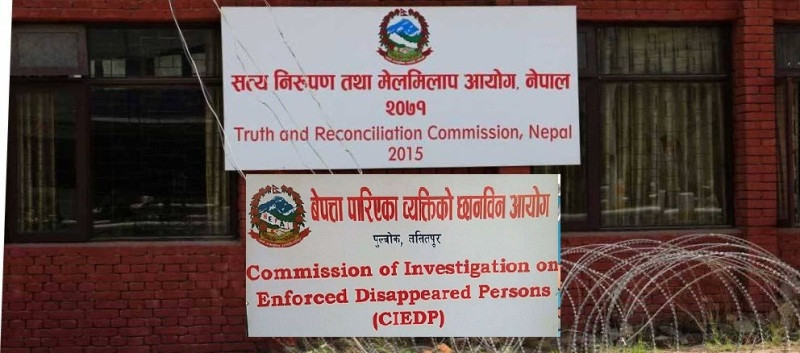Amnesty International, Human Rights Watch and the International Commission of Jurists have slammed the Bill for the Amendment of the Investigation of Enforced Disappeared Persons, Truth and Reconciliation Commission Act (2014) saying it should protect the conflict victims, not the abusers.
Issuing a joint statement on Monday, the three organizations have stated that the bill, that was presented to the House on March 19, does not fully meet the country’s domestic law or international legal obligations and will not provide justice for victims if adopted in its current form.
“The bill, if adopted as currently formulated, will not adequately provide for the effective prosecution of serious crimes under international law,” the statement adds.
It accuses the government of failing to adequately consult conflict victims about the content of the draft legislation, seriously undermining the credibility of its current approach. “The bill should not be adopted in its current form; instead, it should be revised to comply with Nepal’s Supreme Court rulings and international human rights law and standards. In addition, the revision process should ensure adequate consultation with conflict victims about the content of the proposed legislation.”
The statement quotes Amnesty International’s Deputy Regional Director for South Asia Dinushika Dissanayake as saying that key provisions of the bill appear to be designed to shield alleged perpetrators from prosecution for some of the most serious crimes under international law. “If it is rushed through parliament without significant changes, it cannot be the basis for a process that has the support of conflict victims, nor legal credibility at home or abroad.”
The statement points that both the Maoist armed group and government security forces committed serious human rights violations and violations of international humanitarian law amounting to crimes under international law during the armed conflict in Nepal from 1996 to 2006. It concedes that some aspects of the current bill can be the basis for progress, which is long overdue and desperately needed.
“However, if adopted as currently formulated, the bill would allow many people allegedly responsible for abuses amounting to crimes under international law to evade justice,” it warns. “It would result in the Nepali justice system continuing to abandon many victims and survivors, some of whom have waited two decades for truth and redress.”
The statement has said that the bill gives rise to other serious human rights concerns and listed them as follows:
it fails to establish a special investigation unit to collect evidence. Investigation units with expertise in human rights violations would help ensure that investigations are prompt, thorough and effective, in accordance with international human rights law and standards, and that victims can access effective remedies;
it fails to clarify how the principle of non-retroactivity of criminal law would apply in a manner consistent with international law. International law requires the prosecution of certain serious crimes, such as torture and enforced disappearance, if warranted by evidence, irrespective of whether they were crimes under domestic law when they were committed;
it fails to clarify which ‘applicable law’ would be used to prosecute those involved in serious crimes. The Penal Code, which came into force in 2018, prevents retroactive applicability of its provisions. Moreover, the Penal Code includes statutory limitations for the crimes of rape, torture and enforced disappearances;
it empowers the government to appoint judges on the special court “in consultation with the Judicial Council”, as opposed to through the independent process required by Nepal’s Constitution.

